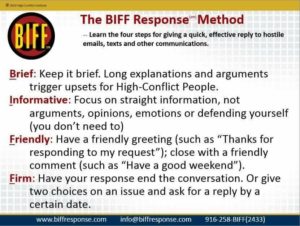How Badly Will Divorce Harm My Children?
Posted in Uncategorized on January 10, 2018
The Harms of Divorce
By Chaim Steinberger
Approximately three times as many children of divorce drop out of school and have children of their own while they themselves are still teenagers than that of children of non-divorced parents. [1] Taking Stock of Parent Education in Family Courts: Envisioning a Public Health Approach, 51 Family Court Review 131, 138 (2013). Twice as many have adjustment problems. [2] Id. at 139. Having parents who are divorced is a recognized risk factor for substance abuse, smoking, mental health problems, risky sexual behavior, long-term general health problems and poorer educational, occupational and marital adjustment even as adults.[3] Id. at 138. That’s not to say every child of divorce will experience any one or more of these problems.[4] Id. at 139. Only that a child faces greater risks for these aliments if the parents are divorced.[5] Id. Staying together, however, in a troubled marriage may be no better, and your children will grow up thinking that your troubled marriage is “normal” and that’s all they should expect out of life.
So if you’re divorcing, what can you do to reduce the risks to your child? By recognizing and reducing the factors that place your child at greater risk, you can increase the chances that your child won’t face these problems now and in the future.
Psychologists have identified six primary factors that raise the risks to your child:[6] Id.
- 1. Domestic violence;
- 2. High levels of conflict between you and your child’s other parent;
- 3. A poor, or non-existent, co-parenting arrangement between you and your child’s other parent;
- 4. Your child’s loss of a relationship with the other parent;
- 5. Poor quality parenting by either you or your child’s other parent; and
- 6. Low economic resources;
Obviously, you can’t always control every one of these factors. You can, however, remain cognizant of the factors and strive to find ways to reduce or eliminate as many of them as you can. And though you cannot control your ex’s behavior, you do have control over your own.
Minimizing Divorce’s Harmful Effects on Children
Of course, every divorce and breakup poses challenges. Obviously, if you and your ex liked each other you’d have stayed together. When couples break up and get divorced, that is often the culmination of a long, difficult, and tempestuous relationship. Tempers run high, patience is frayed, and fear for the future turns into anger and even hatred. To help your children survive your divorce, you will have to summon your better angels and behave better towards your ex than you had while you were married!
Of course, it would be so much easier to tell your ex off every time you feel like it. However, that won’t serve your child. The important question is “Do you love your child more than you hate your ex?” If your answer is yes, you will temper your responses and try to be gracious even when your ex does something irritating or downright stupid. You’ll bite your tongue and remember what Momma taught us, “If you don’t have something nice to say, say nothing at all.” You won’t get the instant gratification of cussing out your ex, but you will gain the pride and good feeling that comes from the selfless act of putting your child ahead of your own instant gratification. You will be giving your child the greatest gift possible–the gift of not having to choose between parents, of being allowed to love both parents, of having two parents who can see a way to work together for your child’s benefit and the best chance of surviving the divorce and developing into a healthy, well-adjusted adult.
One way of reducing conflict is to use Bill Eddy’s “BIFF” method when you’re communicating with your ex.[7] See, Bill Eddy, LCSW, Esq.’s article regarding hostile emails, at http://www.highconflictinstitute.com. Avoid giving opinions, urging your ex to show up to your child’s play or, God forbid, giving your ex an argument. When speaking, writing or emailing them, keep your communications Brief, Informative, Firm and Friendly (“BIFF”). Like Sergeant Friday of Dragnet famously intoned to each of his many verbose crime victims, “Just the facts, Ma’am. Just the facts.”

Keep your child’s other parent involved in your child’s life. Studies show that parents who remain involved in their children’s lives contribute more support, pay on time, and are less likely to challenge child-support and custody decisions. Moreover, every boy bases his ideas on how to be a man on what he observes from his father, and what to expect from a spouse by what he observes from his mother. Every girl models her relationship with men after that of the one she had with her father, and how to be a woman by what she sees of her mother. Thus, every child needs both a mother and a father. Cutting the other parent out of the child’s life is a form of child abuse and is devastating to the child’s psyche, adjustment, and long-term well-being.[8] For more on this complicated issue, see Chaim Steinberger, Father? What Father? Parental Alienation and its Effects on Children, available on our Resources for Alienation page. No matter how much you feel that your child is “better off without” your ex, that may not be true for your child’s long-term adjustment and well-being.
Take the path of Divorce Without Destruction. You can often get a better result by being less adversarial.
Consider taking online or in-person parenting classes, offered by many states, to learn alternative ways to deal effectively with your challenging ex.[9] For a description of certain court programs, see Zoey Mayhew, 2016 Mich. St. L. Rev. 1147, 1164–1170 (2016). Moreover, being able to discuss different responses to the things your ex says and does, might give you better ways of responding. And, of course, we can all use a support system, so you might make friends who will help and support you while you go through these challenges. The long in-person parenting classes offer such opportunities to practice ways of responding and are generally more helpful, long-term, than the brief short ones. [10] Id.
Learn to negotiate effectively, not by giving in, but by framing things from a positive mindset. [11] See, for example, William Ury, The Power of a Positive No: Save The Deal Save The Relationship and Still Say No.
\
By taking the higher road, you and your child will be better off. You will reduce or eliminate conflict with your ex, you will be giving your child the gift of two parents, and you will be giving your child a safe and secure childhood a healthy platform from which to develop into a healthy adult.
To learn more about this or another topic relating to divorce and family law, check out our free New York Divorce Guides or call us today at (212) 964-6100!
Contact A Caring Manhattan Divorce and Family Law Lawyer Today
Of course, you will need a skilled lawyer to protect and defend you and your rights. Call our offices for a free telephone consultation and to learn how we can help you. A Manhattan Family Law Attorney at Chaim Steinberger, P.C. can give you a solid foundation for meeting your goals during divorce, legal separation, annulment, and more.
References

